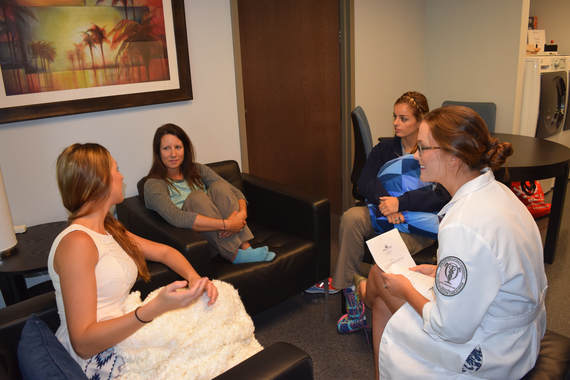Author: Lucy TaylorLucy Taylor is an avid blogger who enjoys sharing her tips and suggestions with her online readers. Working as a legal expert at LY Lawyers, Lucy often helps people dealing with legal problems, addictions and crime. Follow her on her Twitter @LucyTaylor1981. Here’s how to spot when an addict is about to relapse – and how to help them out. Addiction is a lifelong burden to bear: an addict in recovery believes that they will never truly be cured. They can relapse at any time, and without personal diligence and a good support system, many addicts do fall victim to this. Here’s how to spot when an addict is about to relapse – and how to help them out. 1. Change in mood If someone’s mood suddenly changes, and especially if they are experiencing mood swings, this could be a key sign of internal conflict. Not only that, but sudden stress and irritability could lead to them seeking a return to their old addiction in order to feel better. Irritability, secrecy, and sudden bad moods are key signs to look out for. If you spot those signs in an addict you know, try talking to them about the cause behind their mood change to see if you can help alleviate the source. Irritability, secrecy, and sudden bad moods are key signs to look out for. 2. Return to old habits When recovering addicts return to the places and people that they hung around when they were addicted, they often feel like they are strong enough to handle it. In truth, this often tends to be the first step on a return to the downward spiral. Particularly if they are around people who are still using (or gambling, or whatever their addiction may have been), they are much more likely to relapse. You may wish to gently turn them away from these old habits, or at least accompany them to keep their mind off temptation. 3. Missing meetings Most addicts will continue to attend meetings, group sessions, or therapy for the rest of their lives. This helps them to stay on the straight and narrow. When someone starts to miss meetings, they may be on the verge of a relapse. At this point, try to make sure that they do return to their meetings, even if you have to drive them there yourself. 4. Overconfidence If your friend or loved one is very adamant and vocal about their recovery, this may ironically be a sign that they are about to relapse or have already done so. The louder they shout about it, the more they feel that they are in control – so this could be a bad sign. When this happens, act firmly and with authority to ensure that they never downplay the severity of their addiction. Doing so just opens the door to relapse. 5. Being trapped Is your addict in a difficult situation? If they feel trapped or like everything is going wrong, they may decide that a return to their addiction is the only way out. Some may even feel that this is the only option besides suicide. These feelings can be very strong, and they may not be able to express them. Help them to work through any problem they may have at work or at home so that they can see a light at the end of the tunnel. If your friend was addicted to drugs, for example, they may start drinking excessively. 6. Other addictive behaviours
If your friend was addicted to drugs, for example, they may start drinking excessively. This behaviour is a desperate attempt to control the addiction by replacing it, but actually may lead to a relapse. An intervention is necessary in this case. 7. Crisis building If the addict begins to treat small, everyday problems as huge crises, this may be a sign that they are spiralling out of control. They may turn to their addiction to cope. Sit down with them and let them know that everything will be alright when this happens. Often, simply talking to an addict can help keep them on the straight and narrow. If you don’t think your words are helping, it may be time to turn to a professional for help.
2 Comments
Dorelle Brits
12/10/2017 21:21:59
I would like to receive info/tips to support and help my son who is a recovering addict.
Reply
Nebo
13/10/2017 19:41:27
Dear Dorelle,
Reply
Leave a Reply. |
Please note that most of the articles have a "Read More" break, which is sometimes hardly visible.
It is located at the bottom of visible part of the article, on the right side. To continue reading the article, click on that link. This page may contain affiliate links meaning we earn a commission if you use those links.
We only recommend pages we appreciate and trust. Archives
March 2023
Categories
All

|
For guest posts or placing ads on our website, please use the contact form on the 'About/Contact Us' page.






 RSS Feed
RSS Feed

